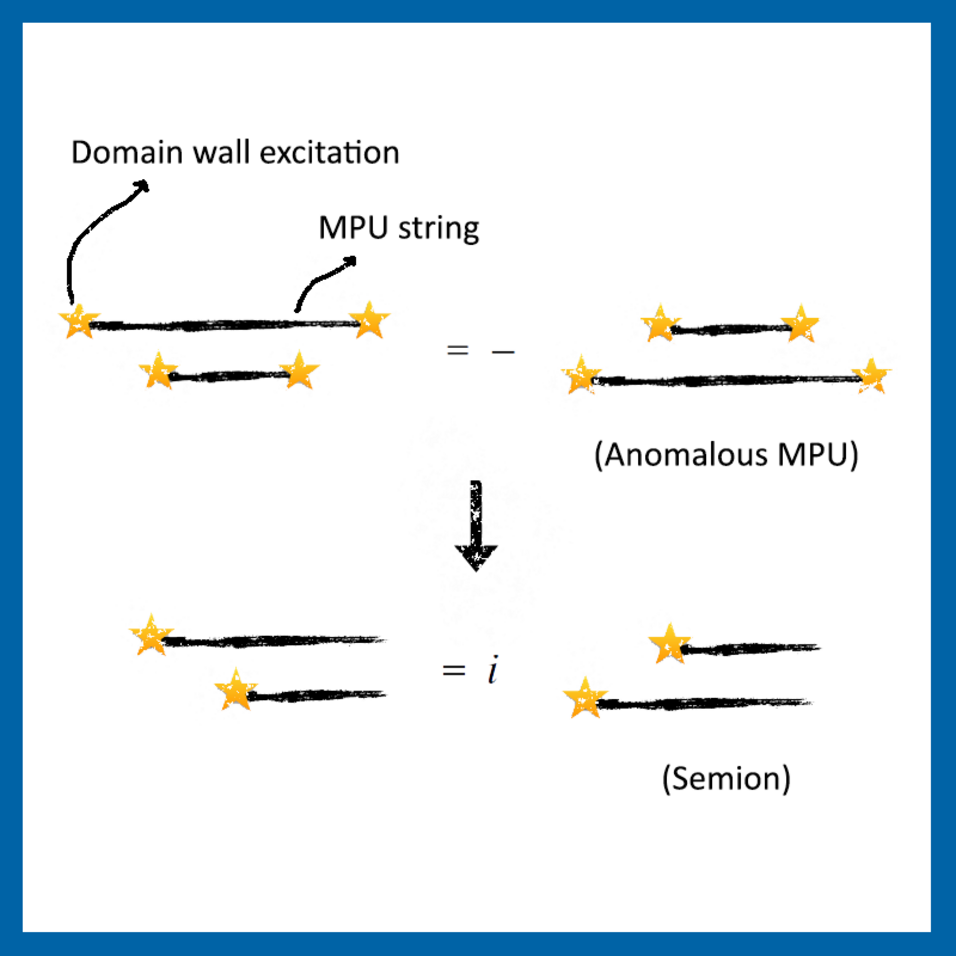The paper titled "Fractional domain wall statistics in spin chains with anomalous symmetries" by José Garre Rubio and Norbert Schuch has now been published in SciPost Physics [SciPost Phys. 18, 043 (2025)].
For more information on this work, take a look at the abstract below and at the open-access article (doi: 10.21468/SciPostPhys.18.2.043).
Abstract
We study the statistics of domain wall excitations in quantum spin chains. We focus on systems with finite symmetry groups represented by matrix product unitaries (MPUs), i.e. finite depth quantum circuits. Such symmetries can be anomalous, in which case gapped phases which they support must break the symmetry. The lowest lying excitations of those systems are thus domain wall excitations. We investigate the behavior of these domain walls under exchange, and find that they can exhibit non-trivial exchange statistics. This statistics is completely determined by the anomaly of the symmetry, and we provide a direct relation between the known classification of MPU symmetry actions on ground states and the domain wall statistics. Already for the simplest case of a Ζ2 symmetry, we obtain that the presence of an anomalous MPU symmetry gives rise to domain wall excitations which behave neither as bosons nor as fermions, but rather exhibit fractional statistics. Finally, we show that the exchange statistics of domain walls is a physically accessible quantity, by devising explicit measurement operators through which it can be determined.
This work has received support through the ERC grant SEQUAM as well as the Austrian Science Fund FWF (grant DOIs 10.55776/COE1, 10.55776/P36305 and 10.55776/F71), and the European Union (NextGenerationEU).

